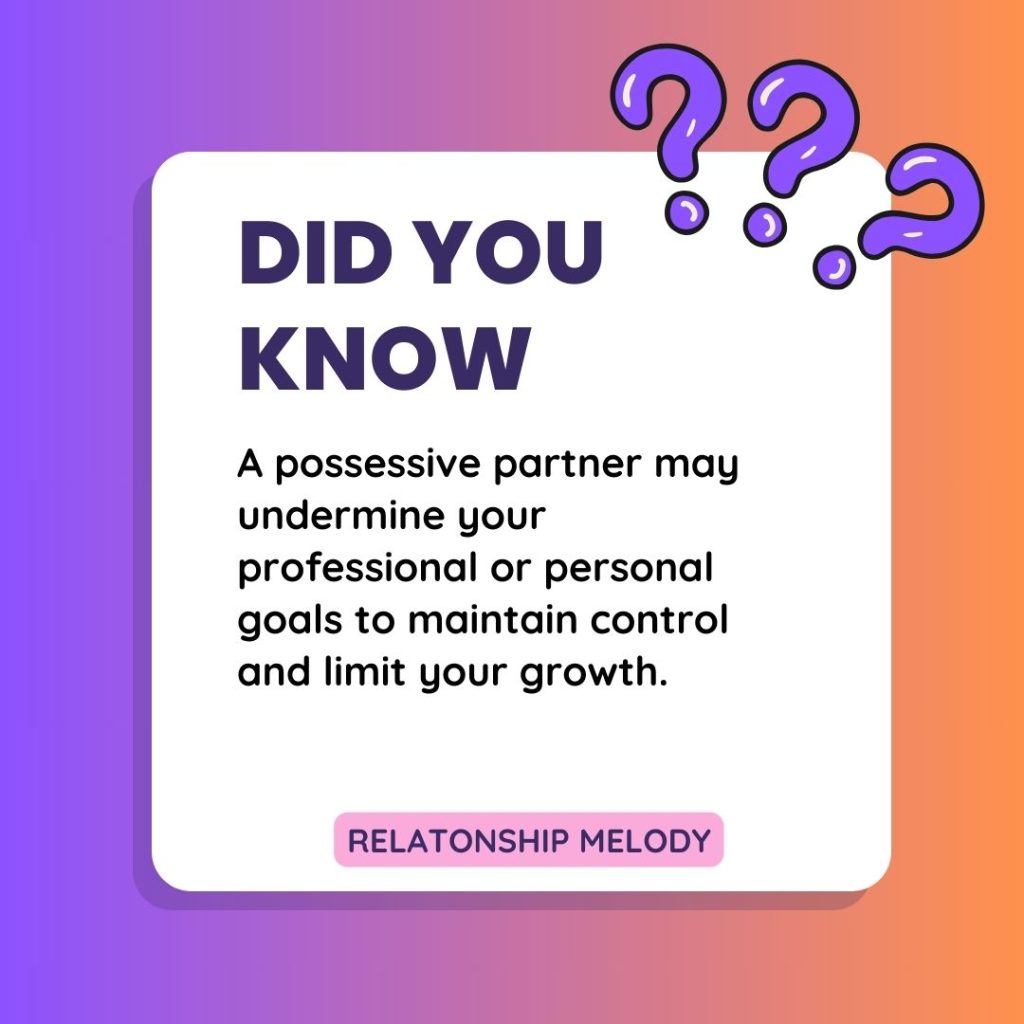25 Signs He Is Possessive Of You
In any healthy relationship, trust, respect, and freedom are essential pillars. However, sometimes possessive behaviors can creep into a relationship, causing distress and imbalance. It is crucial to recognize these signs and address them early on to maintain a healthy and thriving partnership.
In this blog post, we will explore 25 signs that indicate your partner may be displaying possessive tendencies. Remember, this article is not meant to diagnose or label anyone, but rather to raise awareness and encourage open communication in relationships.
25 Signs He Is Possessive Of You
Here are 25 signs to know.
#1 Constant Monitoring:
This sign involves your partner frequently checking your phone, social media accounts, and emails without your consent or knowledge. Such behavior invades your privacy and reflects a lack of trust. Healthy relationships require respect for each other’s boundaries and privacy.
#2 Isolating You:
A possessive partner may discourage you from spending time with friends or family, attempting to cut off your support network. By isolating you, they gain more control over your life and diminish your independence. It is crucial to maintain healthy connections outside your romantic relationship.
#3 Extreme Jealousy:
Excessive jealousy and possessiveness can manifest when your partner becomes overly suspicious or threatened by your interactions with others, even if they are innocent. This behavior stems from insecurity and can lead to toxic dynamics within the relationship.
#4 Controlling Your Appearance:
A possessive partner may dictate how you should dress, wear your hair, or use makeup. This control over your physical appearance is a way for them to exert dominance and restrict your self-expression.
#5 Invasive Questions:
If your partner constantly interrogates you about your whereabouts and demands explanations for your actions, it indicates a lack of trust and respect for your autonomy. Healthy relationships thrive on open communication rather than interrogation.
#6 Extreme Mood Swings:
Unpredictable mood swings, ranging from affectionate to angry or distant, create an atmosphere of uncertainty and anxiety. These fluctuations keep you on edge, making it difficult to have a stable and secure relationship.
#7 Constant Criticism:
A possessive partner often belittles your achievements, appearance, or opinions as a means of undermining your self-esteem. They may do this to make you doubt yourself and become dependent on their validation.
#8 Financial Control:
Taking charge of all financial matters in the relationship can be a way for a possessive partner to maintain power and control over you. It limits your financial independence and can make you feel trapped.
#9 Manipulative Behavior:
Possessive partners frequently employ guilt trips, emotional blackmail, or manipulation tactics to get what they want. These manipulative behaviors erode trust and create a toxic dynamic.
#10 Need for Constant Reassurance:
If your partner constantly seeks validation and reassurance of your love and commitment, it can be emotionally draining. Their constant need for reassurance reflects their insecurities and can hinder the healthy growth of the relationship.
#11 Separation Anxiety:
Possessive partners may experience extreme distress or anger when you spend time away from them, fearing abandonment. This fear can lead to controlling behavior and an unhealthy reliance on your presence.
#12 Sabotaging Your Success:
A possessive partner may undermine your professional or personal goals to maintain control and limit your growth. They might discourage your achievements, making you doubt your abilities and potential.

#13 Dictating Your Schedule:
If your partner insists on controlling your daily routine and deciding where you can go and with whom, it is a sign of possessiveness. Healthy relationships respect each other’s autonomy and allow for individual freedom.
#14 Extreme Possessiveness:
Possessive partners consider you their property and display possessive behaviors even in public. They may act possessively around others, restricting your interactions and making you feel trapped.
#15 Gaslighting:
Gaslighting involves manipulating your perception of reality, making you question your thoughts, feelings, and experiences. Possessive partners may use gaslighting as a means of controlling and distorting your reality.
#16 Alienating Friends and Family:
Possessive partners intentionally create conflicts or tensions between you and your loved ones, isolating you further. By alienating your support system, they gain more control over you.
#17 Threats of Violence:
A possessive partner may resort to threats, whether physical or emotional, to maintain control and instill fear. Threats of violence are serious red flags that should never be ignored.
#18 Stalking Behavior:
Possessive partners may exhibit stalking behavior, such as following your every move, showing up unexpectedly, or using technology to monitor your location. Stalking is a severe violation of privacy and safety.
#19 Excessive Phone Calls and Messages:
Bombarding you with calls and messages, and expecting immediate responses, is a sign of possessiveness. This behavior can be suffocating and indicative of a lack of trust and respect for personal space.
#20 Lack of Trust:
A possessive partner often doubts your loyalty and faithfulness without any evidence. Their lack of trust creates an unhealthy dynamic and can lead to constant surveillance and suspicion.
#21 Invasion of Personal Space:
Disregarding your boundaries and personal space is a common sign of possessiveness. A possessive partner may insist on constant physical contact or invade your personal space without consent.
#22 Intense Dependency:
A possessive partner becomes overly dependent on you for emotional support, making it challenging for you to prioritize your own needs. This dependency can create an imbalanced and unhealthy dynamic.
#23 Emotionally Draining:
Possessive partners constantly require your attention, leaving you emotionally exhausted and unable to tend to your well-being. Healthy relationships should be mutually nurturing and supportive.
#24 Verbal or Physical Aggression:
Possessive partners may resort to yelling, name-calling, or even physical violence when they feel threatened or challenged. This is a severe warning sign that indicates an unsafe and unhealthy relationship.
#25 Fear of Confrontation:
If your partner becomes angry or resentful when you express your concerns or attempt to set boundaries, it signifies a lack of respect for your feelings and a disregard for open communication.
Read more: Signs He Is Perfect For You.
Conclusion:
Recognizing possessive behaviors is the first step towards addressing and rectifying them in a relationship. If you identify any of these signs in your partner’s behavior, it is important to initiate open and honest communication. Seek support from trusted friends, family, or professionals to navigate the complexities of possessiveness.
Remember, no one should possess or control another person; a healthy relationship is built on trust, respect, and mutual growth. By addressing possessive tendencies, you pave the way for a healthier, more fulfilling connection with your partner.
Liked Our Article?
Our Patreon link: https://www.patreon.com/RelationshipMelody

Welcome to Relationship Melody! Our website is dedicated to all things on relationships, dating, and love! We are passionate about helping you navigate the ups and downs of love, and our goal is to provide you with valuable insights and information that will make your journey toward a fulfilling relationship smoother and more enjoyable.







